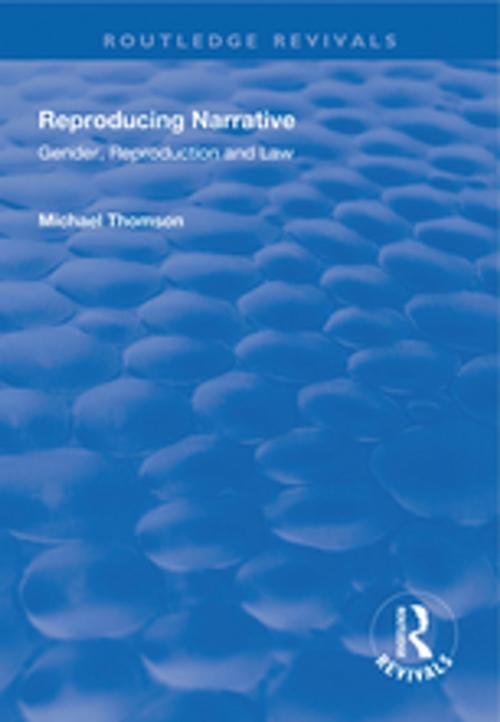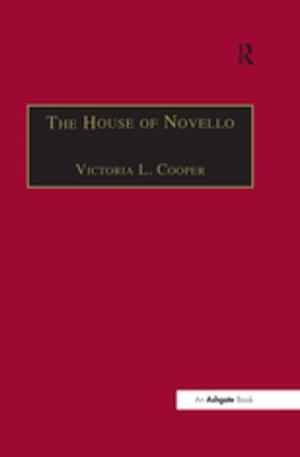| Author: | Michael Thomson | ISBN: | 9780429824654 |
| Publisher: | Taylor and Francis | Publication: | December 20, 2018 |
| Imprint: | Routledge | Language: | English |
| Author: | Michael Thomson |
| ISBN: | 9780429824654 |
| Publisher: | Taylor and Francis |
| Publication: | December 20, 2018 |
| Imprint: | Routledge |
| Language: | English |
First published in 1998, Reproducing Narrative sets out to interrogate a number of medico-legal reproductive discourses. Recognizing that these dialogues are heavily imprecated in broader social, political and economic discourses it is contended that responses to reproductive issues are influenced and possibly determined, by non-reproductive concerns both at a parochial and more general level. Whilst a number of such influential narratives are recognized the book concentrates on the narratives of gender which appear implicit within the discourses and practices considered. Given the productive nature of discourse and the traditional premising of gender on sexual difference it becomes apparent that the explicit figuring of the female reproductive body becomes a means of realizing the implicit gender narratives within these discourses. Privileged medico-legal discourses become understood as a technology of gender - an important site at which gender is constituted.
First published in 1998, Reproducing Narrative sets out to interrogate a number of medico-legal reproductive discourses. Recognizing that these dialogues are heavily imprecated in broader social, political and economic discourses it is contended that responses to reproductive issues are influenced and possibly determined, by non-reproductive concerns both at a parochial and more general level. Whilst a number of such influential narratives are recognized the book concentrates on the narratives of gender which appear implicit within the discourses and practices considered. Given the productive nature of discourse and the traditional premising of gender on sexual difference it becomes apparent that the explicit figuring of the female reproductive body becomes a means of realizing the implicit gender narratives within these discourses. Privileged medico-legal discourses become understood as a technology of gender - an important site at which gender is constituted.















